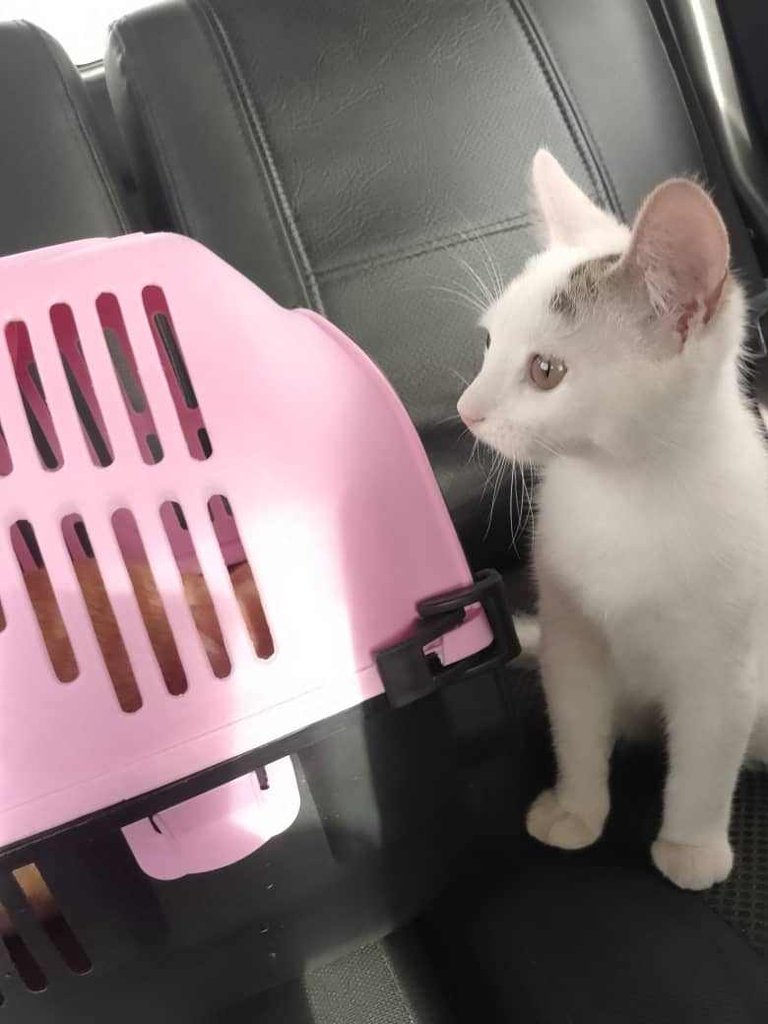

ENGLISH
Hello everyone, happy Sunday afternoon. A few days ago I told you that in these last two weeks I have had an intense activity with my pets, and it is because when I had everything ready for Nevadito's sterilization, suddenly two more members of the herd got sick; Chiqui with stomach problems due to a severe parasitosis, and Lucky with vomiting due to anxiety. Now thanks to God they are all stable, but I don't want to let Chiquilín's case pass because it is important to mention it as a preventive information. Being cat and dog moms, every day we learn more, and I am very grateful to the veterinarians and protectionists who support me, for instructing me in everything that is necessary to know so I know how to deal with anything that comes up with them.
To summarize a little of where Chiqui's problem started, I remind you that we rescued him almost three months ago when he was about a month old, and he was abandoned in a small box in an unhealthy place. Sadly, the person who found him did not shelter him, but reported the situation, so the kitten remained a couple of days in that place, until we rescued him.
The contact with flies, stagnant water and garbage, caused infections in his skin and stomach, besides he had parasites and he was skinny. We took him to the vet with diarrhea and he was put on a special diet and treated with Bactron and Albendazole, after a stool test. He improved a lot, he was already eating and evolving well. The next dose of deworming was due in three months, but days ago, even before that time, my kitten began to present again a picture of liquid diarrhea, abundant, mucous, with foam and bad odor.
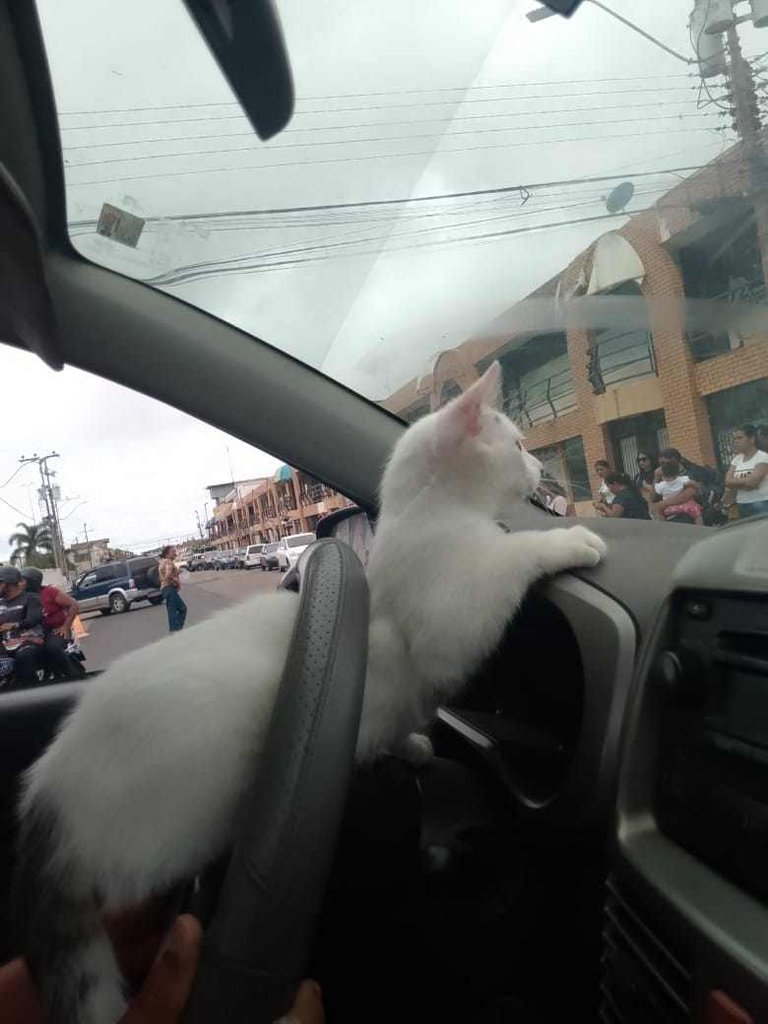
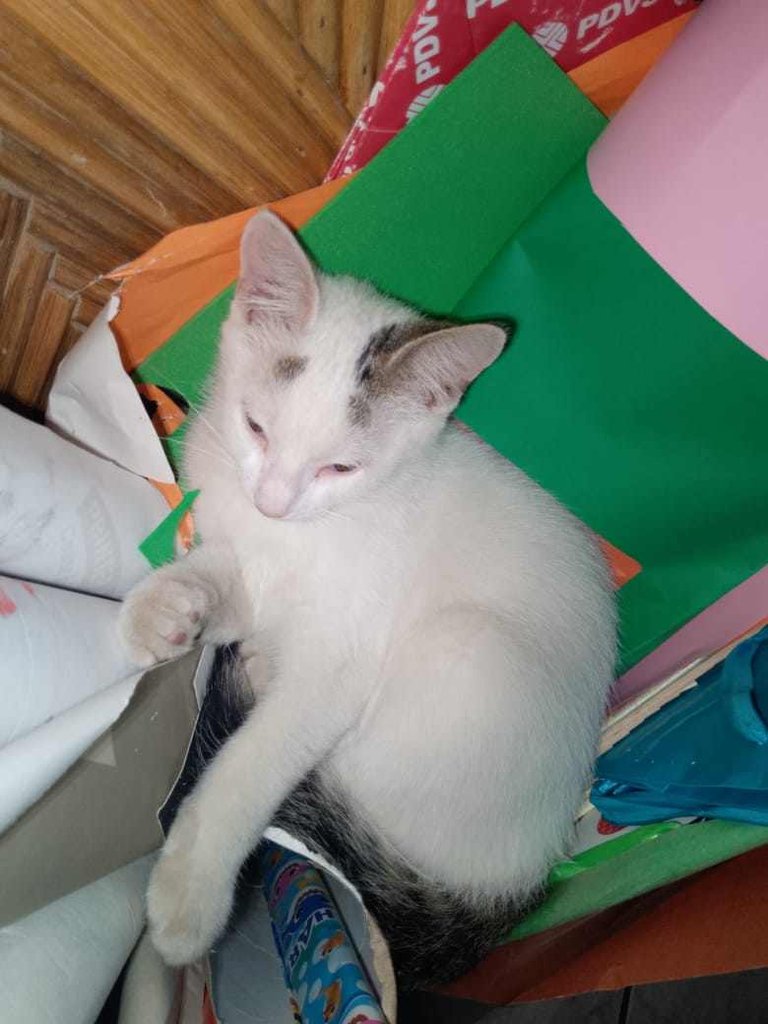
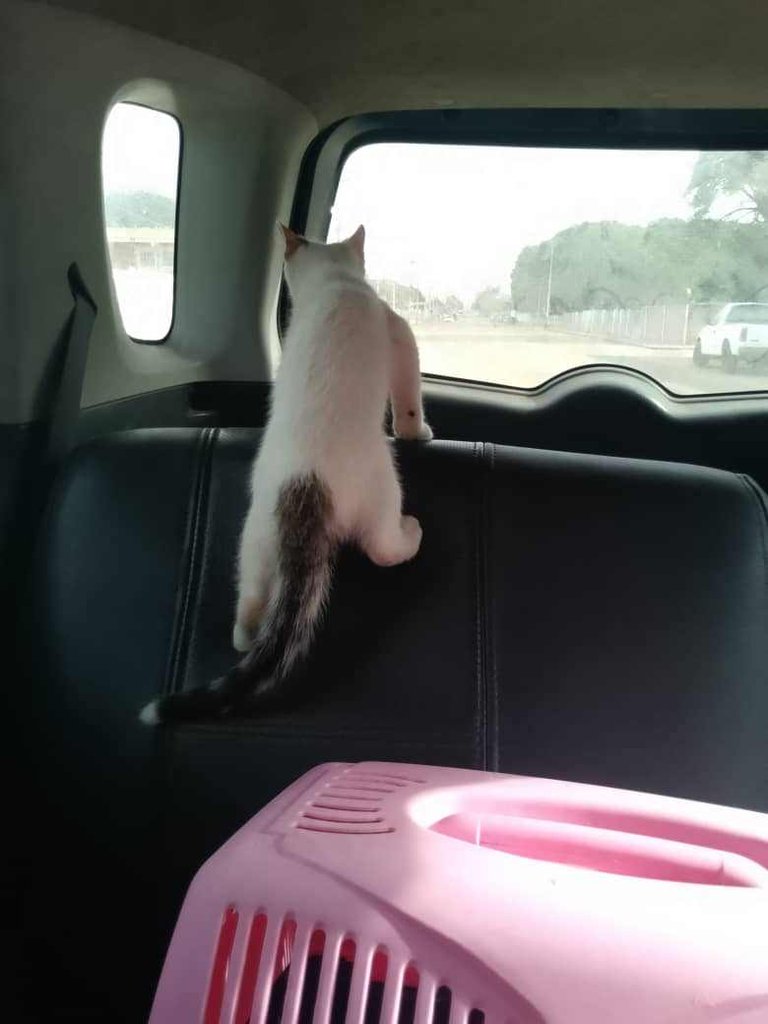
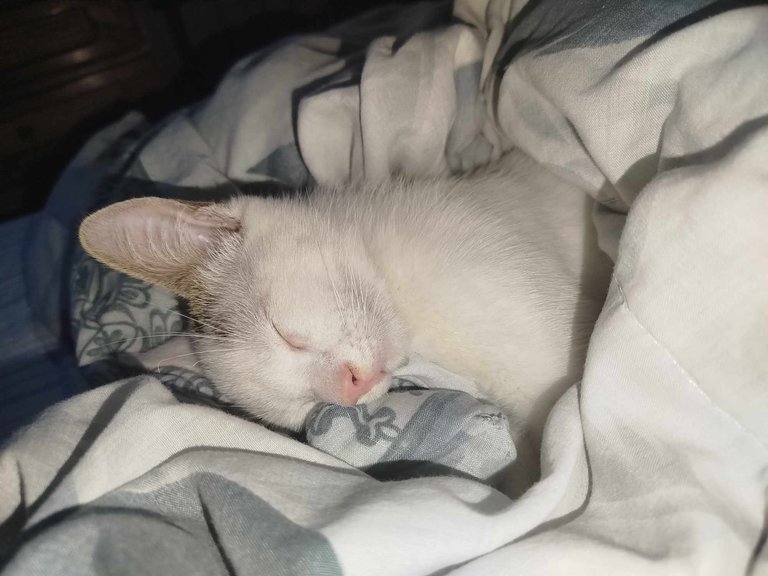
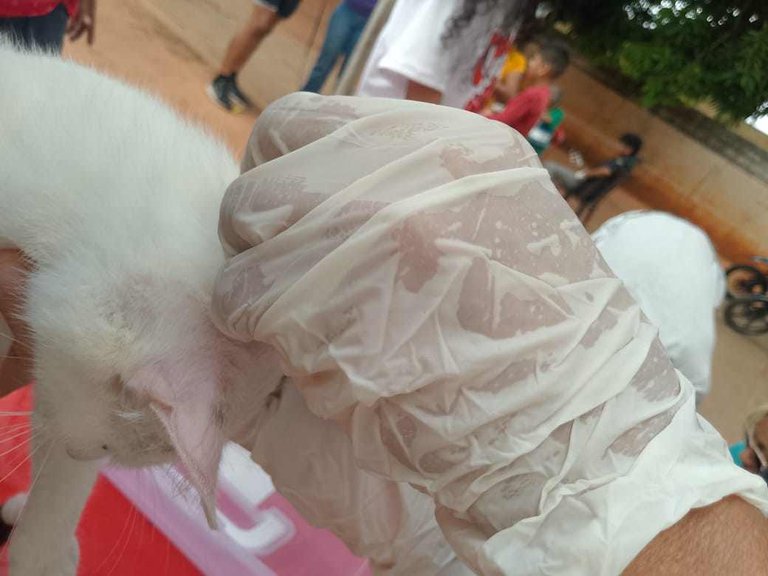
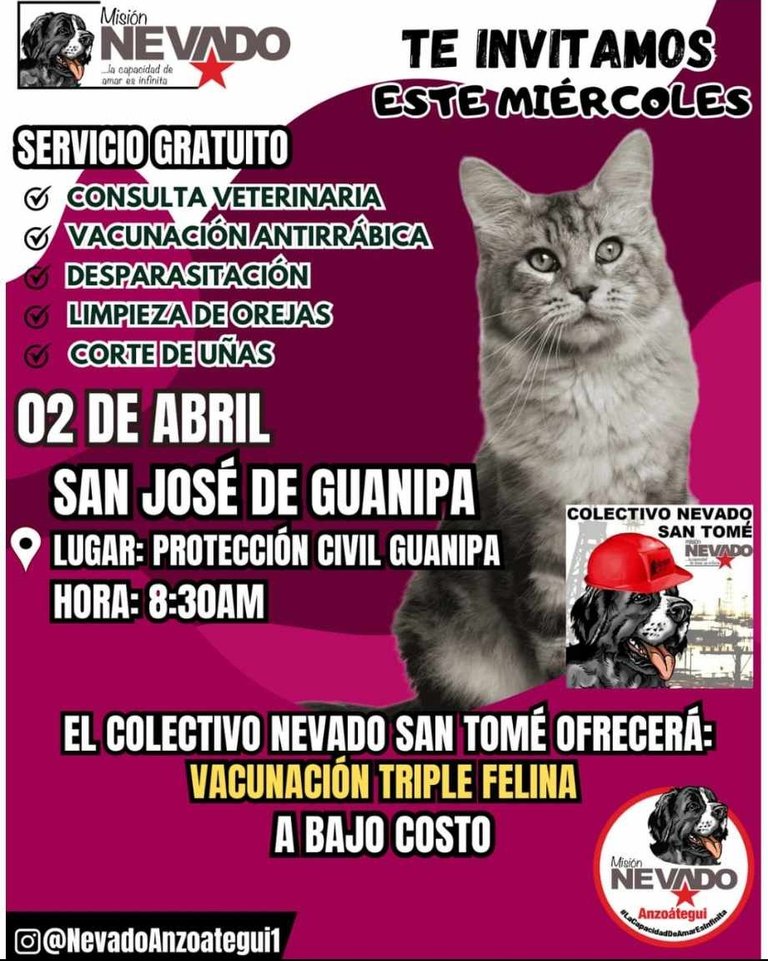 Image courtesy of Misión Nevado Anzoátegui on Instagram and WhatsApp
Image courtesy of Misión Nevado Anzoátegui on Instagram and WhatsApp
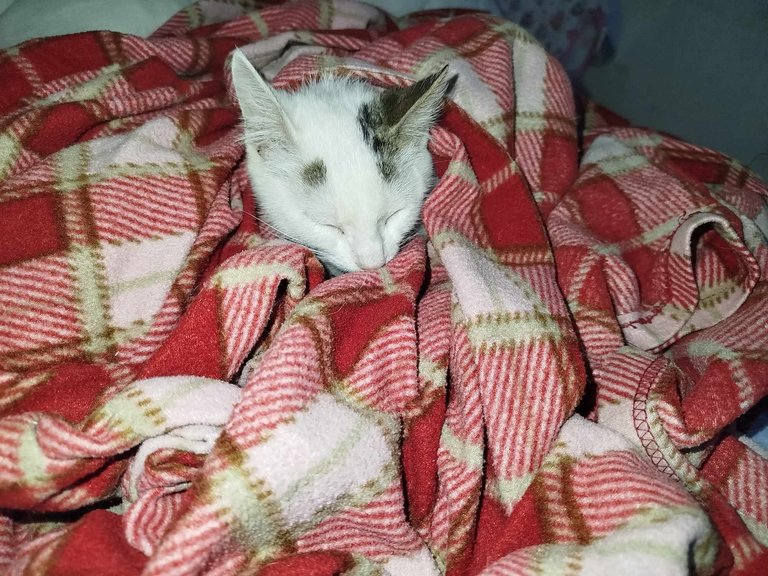
We repeated the treatment and he began to improve, but at the end of the required time, which was three days, the diarrhea returned. We took him to Nevado's veterinary day a day before Nevado's sterilization, and he was vaccinated and given another dose of dewormer. That day and the next, he showed improvement, but early Thursday morning, while Nevado was still doped up from the anesthesia, Chiqui became severe, droopy, didn't want to eat, and was complaining a lot. We gave him chamomile tea and he calmed down until he fell asleep, but first thing in the morning, we took him to our trusted veterinarian.
The first thing was to check her tummy, and take her temperature, she had a high fever. They took a stool sample and did another test. The doctor told us that when the first test was done, approximately two months ago, she had another type of parasitosis and she was treated for that, and the stomach infection; but the parasite that had been detected now, manifested itself after almost three months of incubation, that is why it was not detected. It is a protozoan parasite called Coccidia, which causes coccidiosis, and it is a disease that affects the gastrointestinal tract. Coccidiasis - Google
It can be spread by flies in feces, or in stagnant water that then deposit their eggs in the food. Therefore, it is necessary to take care of the place where pets eat, and in case they leave food, remove it immediately and cover it. Their containers must be washed and protected because they can also land on them when they are empty. The treatment this time was different since the previous one had a slight effect on the parasite and that is the reason for Chiqui's false improvement. He was on a special diet of chicken broth with carrots for several days, and his appetite has returned, and his pupis is normal.
Caution: Before any parasitosis or stomach infection in pets, it is important to do a stool test, and repeat it after finishing the treatment, to rule out any surprises. I hope my post is helpful for pet parents, thank you for visiting my blog... happy Sunday.



ESPAÑOL
Hola a todos, feliz tarde dominguera. Hace días les comentaba que en estas dos últimas semanas he tenido una actividad intensa con mis mascotas, y es porque cuando ya tenía todo preparado para la esterilización de Nevadito, repentinamente se me enfermaron dos miembros más de la manada; Chiqui con problemas estomacales por una parasitosis severa, y Lucky con vómitos por ansiedad. Ahorita gracias a Dios ya todos están estables, pero no quiero dejar pasar el caso de Chiquilín porque es importante mencionarlo a manera de información preventiva. Siendo mamás gatunas y también perrunas, cada día aprendemos más, y yo agradezco muchísimo a los veterinarios y proteccionistas que me respaldan, por instruirme en todo lo que sea necesario conocer para yo saber cómo abordar cualquier cosa que se me presente con ellos.
Para resumir un poco de dónde partió el problema de Chiqui, les recuerdo que a él lo rescatamos hace casi tres meses teniendo aproximadamente un mes de nacido, y estaba abandonado dentro de una cajita en un sitio insalubre. Tristemente, la persona que lo encontró no lo albergó, sino que comunicó la situación, por lo que el gatito permaneció un par de días en ese sitio, hasta que lo rescatamos.
El contacto con moscas, agua estancada y basura, le provocó infecciones en la piel y el estómago, aparte tenía parásitos y estaba flaquito. Lo llevamos al veterinario con diarrea y le colocaron una dieta especial, y tratamiento con Bactron y Albendazol, después de hacerle un examen de heces. Mejoró muchísimo, ya comía y evolucionaba bien. La siguiente dosis de desparasitante le tocaba en tres meses pero días atrás, aun sin cumplirse ese tiempo, mi gatito comenzó a presentar nuevamente un cuadro de diarrea líquida, abundante, mocosa, con espuma y de mal olor.
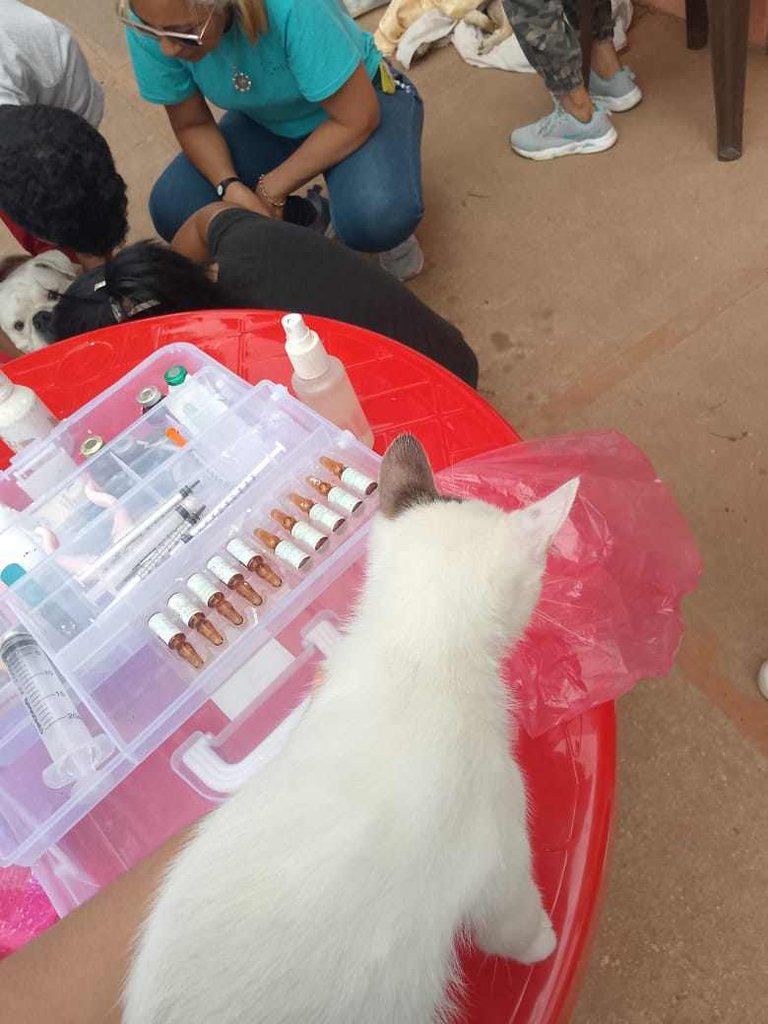

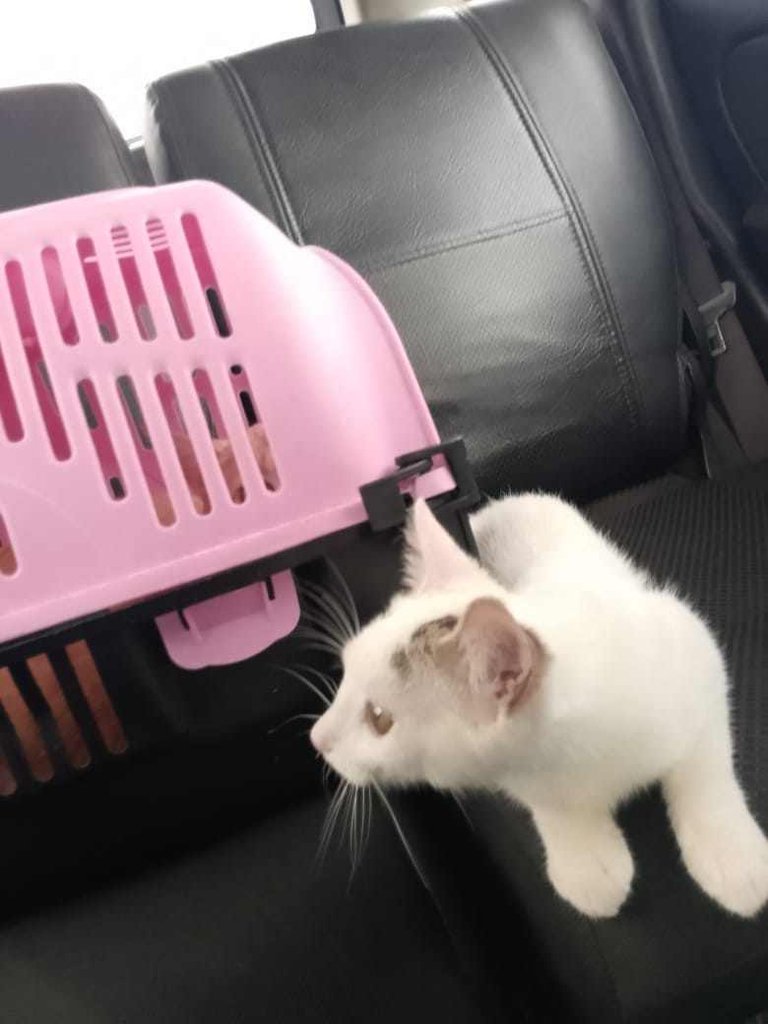
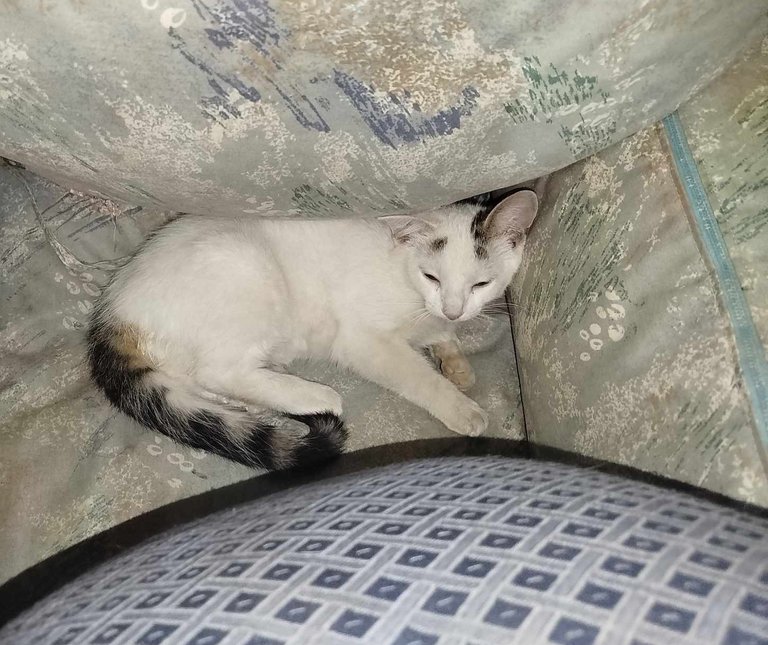
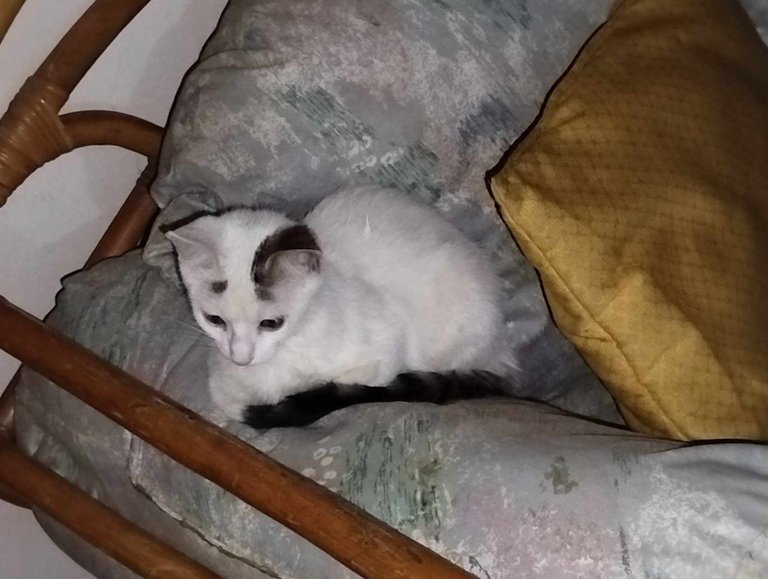
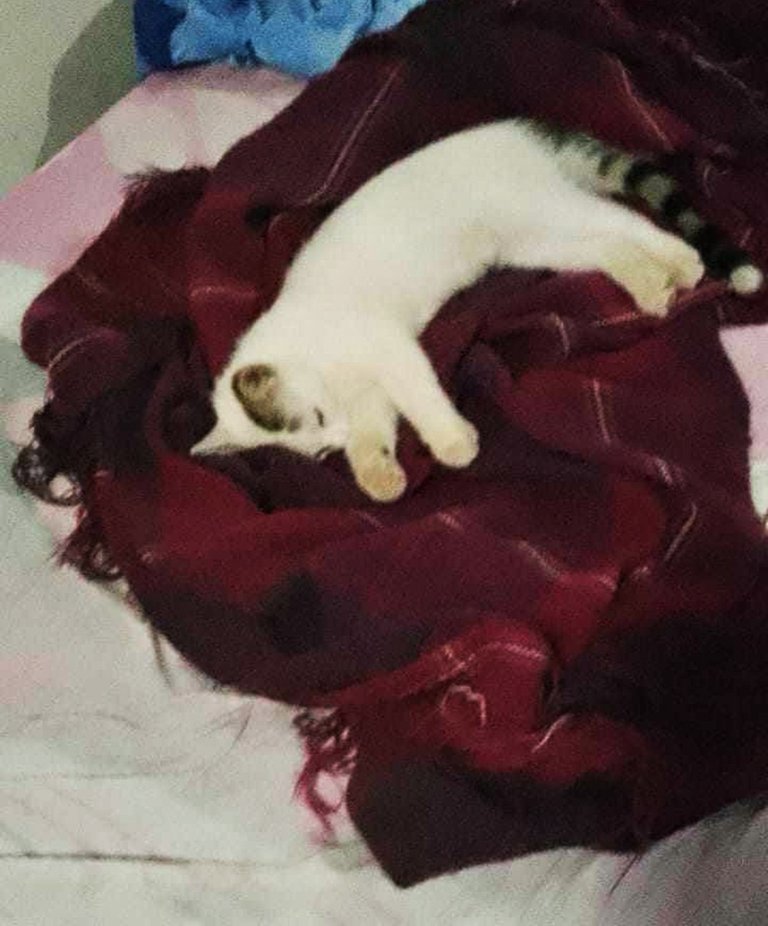
Repetimos el tratamiento y comenzó a mejorar, pero al finalizar el tiempo requerido que eran tres días, volvió la diarrea. Lo llevamos a la jornada veterinaria de Nevado un día antes de esterilizar a Nevado, y lo vacunaron, y le pusieron otra dosis de desparasitante. Ese día y el siguiente, presentó mejoría, pero la madrugada del jueves, cuando aún Nevadito estaba dopado por la anestesia, Chiqui se puso grave, decaído, no quería comer, y se quejaba muchísimo. Le dimos té de manzanilla y se calmó hasta dormirse, pero en la mañana, a primera hora, lo llevamos al veterinario de confianza.
Lo primero fue revisar su pancita, y tomar la temperatura, tenía mucha fiebre. Le tomaron muestra de heces y le hicieron otro examen. El doctor nos dijo que cuando se le hizo el primer examen, hacía aproximadamente dos meses, presentaba otro tipo de parasitosis y se le colocó tratamiento para eso, y la infección estomacal; pero, el parásito que había detectado ahora, se manifestaba después de casi tres meses de incubación, por eso no lo detectaron. Se trata de un parásito protozoario llamado Coccidia, que provoca la coccidiosis, y es una enfermedad que afecta el tracto gastrointestinal. Coccidiosis - Google
Se puede contagiar a través de moscas en heces fecales, o en aguas estancadas que luego depositen sus huevos en la comida. Por lo que hay que cuidar el lugar donde comen las mascotas, y en el caso de que dejen comida, retirarla de inmediato y taparla. Sus envases deben estar lavados y resguardados porque también pueden posarse en ellos estando vacíos. El tratamiento esta vez fue diferente ya que el anterior le hacía un efecto leve al parásito y por eso la falsa mejoría de Chiqui. Estuvo con dieta especial de caldos de pollo con zanahoria por varios días, y ya su apetito volvió, y su pupis es normal.
Precaución: Ante algún cuadro de parasitosis o infección estomacal en las mascotas, es importante hacer un examen de heces, y repetirlo, después de finalizar el tratamiento, para descartar cualquier sorpresa. Espero que mi post sea de ayuda para los papás de mascotas, gracias por visitar mi blog… feliz domingo.

IMAGE SOURCES - FUENTES DE IMÁGENES
The images belong to my digital archive // Las imágenes pertenecen a mi archivo digital.
The translator used is: Deepl Translator // El traductor utilizado es: Deepl Translator

Contenido Original del Autor
Aplicaciones: Canva, PhotoScape, Instagram, Inshot y Pixiz.
Traducción: Deepl Traductor www.DeepL.com/Translator
Las imágenes personales son tomadas con un dispositivo móvil Android Xiaomi Redmi 13 de mi propiedad.
Las imágenes utilizadas en los banners, minibanners, gifs y separadores, son cortesía de Pixabay.
Derechos Reservados del Autor: @annafenix (2021 – 2025)
~ ~ ~ ~ ~ ~ ~ ~ ~ ~ ~ ~
Original Author Content
Applications: Canva, PhotoScape, Instagram, Inshot and Pixiz.
Translation: Deepl Translator www.DeepL.com/Translator
Personal images are taken with an Android Xiaomi Redmi 13 mobile device owned by me.
Images used in banners, minibanners, gifs and separators, are courtesy of Pixabay.
© Copyright: @annafenix (2021 - 2025)

